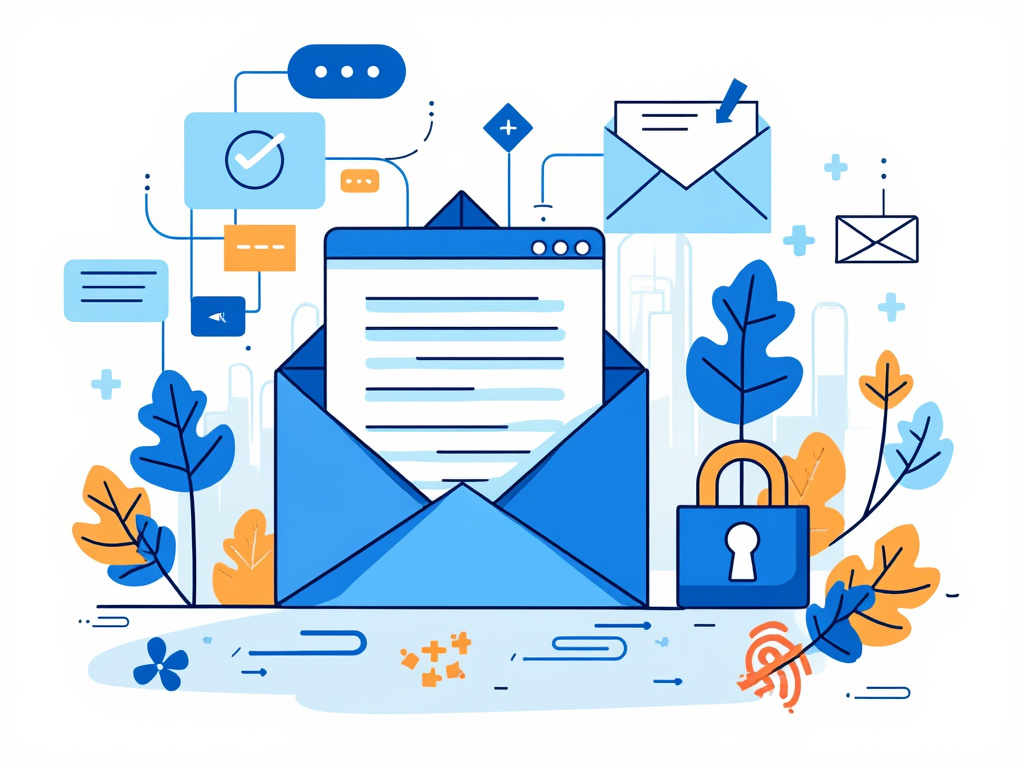Email Security: Guide for Marketers

Email is an essential lifeline for any e-store, serving not only as a communications channel but also as a critical tool for marketing and customer engagement. However, this vital resource comes with its share of vulnerabilities, making email security paramount. Savvy marketers know that while they’re crafting the perfect campaign, they also need to protect their campaigns and customer data from potential threats. Here’s a comprehensive guide to mastering email security and ensuring your e-store thrives safely in the digital marketplace.
Understanding the Risks
Before diving into protection methods, it’s crucial to grasp the threats that are prevalent. Cybercriminals are constantly evolving their tactics, aiming to exploit weaknesses within your email system. Common threats include:
- Phishing Attacks: Fraudulent emails designed to trick recipients into revealing sensitive information or downloading malware.
- Spam and Unsolicited Emails: These can damage your brand’s reputation and may lead to your emails landing in spam folders.
- Data Breaches: Unsecured email accounts can result in unauthorized access and the potential loss of customer data.
- Malware Infections: Emails can serve as carriers for harmful software, compromising your systems and data integrity.
Understanding these risks is the first step toward implementing robust security measures.
Implementing Strong Authentication Methods
To fortify your email security, consider adopting multi-factor authentication (MFA). This adds an extra layer of protection by requiring two or more verification factors to gain access to your email accounts.
- Something you know: Your password.
- Something you have: A physical token or a smartphone app providing a time-sensitive code.
- Something you are: Biometric data, like fingerprints or facial recognition.
MFA significantly reduces the risk of unauthorized access, making it an essential aspect of any email security strategy.
Regularly Update Your Passwords
Passwords are the first line of defense, yet they’re often the most neglected. Implementing a regular password change policy can enhance security. Here are some tips for strong passwords:
- Use a minimum of 12 characters, including upper and lowercase letters, numbers, and special characters.
- Avoid easily guessed information, like birthdays or common words.
- Consider using a password manager to generate and store strong passwords safely.
Regularly changing passwords and ensuring they adhere to strong criteria can greatly reduce vulnerability.
Utilize Email Encryption
Email encryption is a key component in protecting sensitive information. It ensures that only intended recipients can read your messages. There are various methods of encryption:
- Transport Layer Security (TLS): Encrypts emails during transit to prevent interception.
- End-to-End Encryption: Only the sender and recipient can access the content of the email, providing the highest level of security.
- Secure/Multipurpose Internet Mail Extensions (S/MIME): Utilizes digital certificates to encrypt messages and verify identities.
By implementing email encryption, you protect both your messages and your customers’ sensitive data.
Monitor and Educate Your Team
Email security is not solely the responsibility of the IT department; it requires a collective effort. Regular training sessions can empower your team to recognize and respond to threats effectively. Provide resources and guidelines on phishing detection and safe email practices.
- Encourage employees to report suspicious emails.
- Train them to scrutinize email addresses and links.
- Run simulated phishing tests to build awareness and prepare them for real threats.
A well-informed team is your best defense against email-related security issues.
Integrating Automation Tools for Monitoring
As a marketer, you can leverage technology to help maintain email security. Using automated tools can ease the burden of monitoring and managing your email campaigns. Incomaker is an excellent solution for this; it allows for streamlined marketing email automation while also providing analytics to ensure that marketing efforts are both effective and secure.
Incomaker can help track your email campaigns, ensuring that you are aware of who is interacting with your communications. This visibility is crucial; understanding email engagement can provide insights into potential security vulnerabilities, allowing you to act before issues escalate.
Keep Software Up to Date
Finally, regularly updating your email service and related software is another essential step in securing your email communications. Software updates often address security vulnerabilities, making it crucial to stay current. Enable automatic updates wherever possible and periodically review your email service provider’s security practices.
By proactively managing your email security, your e-store can remain a safe place for your customers to engage and shop, ultimately fostering trust and promoting sales growth.
Embracing a culture of security, investing in the right tools, and educating your team will all contribute to keeping your email communications secure and effective, allowing you to focus on what really matters—growing your business.



